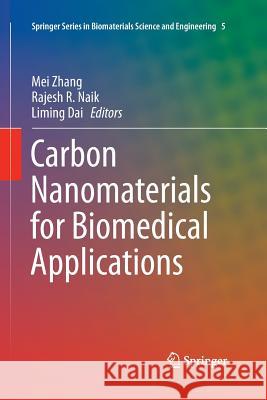Carbon Nanomaterials for Biomedical Applications » książka
topmenu
Carbon Nanomaterials for Biomedical Applications
ISBN-13: 9783319342948 / Angielski / Miękka / 2016 / 576 str.
Kategorie:
Kategorie BISAC:
Wydawca:
Springer
Seria wydawnicza:
Język:
Angielski
ISBN-13:
9783319342948
Rok wydania:
2016
Wydanie:
Softcover Repri
Ilość stron:
576
Waga:
0.81 kg
Wymiary:
23.39 x 15.6 x 3.02
Oprawa:
Miękka
Wolumenów:
01
Dodatkowe informacje:
Wydanie ilustrowane











